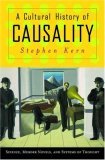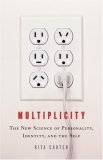March 25, 2008

The Limits of Dream: A Scientific Exploration of the Mind/Brain Interface by J.F. Pagel (Academic Press, 2008).
From the book description:
The Limits of Dream focuses on what we currently know of the human central nervous system (CNS), examining the basic sciences of neurochemisty, neuroanatomy, and CNS electrophysiology as these sciences apply to dream, then reaching beyond basic science to examine the cognitive science of dreaming including the processes of memory, the perceptual interface, and visual imagery. Building on what is known of intrapersonal CNS processing, the book steps outside the physical body to explore artificially created dreams and their use in filmmaking, art and story, as well as the role of dreaming in creative process and creative madness. The limits of our scientific knowledge of dream frame this window that can be used to explore the border between body and mind. What is known scientifically of the cognitive process of dreaming will lead the neuroscientist, the student of cognitive science, and the general reader down different paths than expected into an exploration of the fuzzy and complex horizon between mind and brain.
Comments (0)
- cognitive science,mind,new books
March 23, 2008
Found via Lifehacker: BookLamp is developing a book recommendation system based on stylistic characteristics such as pacing and density, attempting to analyze books in the way Pandora does music. They have a very limited database of around 170 (mostly science fiction) books, so at this point it’s just a demo of the concept; it seemed to me that the video actually gives a better idea than the site itself. The site also has a forum to solicit reactions and suggestions for the project.

Comments (0)
- book search
March 22, 2008
 I’m familiar with Clay Shirky as the author of “Ontology Is Overrated” a great essay on folksonomy, so I’m interested in his new book Here Comes Everybody: The Power of Organizing Without Organizations, which also has a related blog.
I’m familiar with Clay Shirky as the author of “Ontology Is Overrated” a great essay on folksonomy, so I’m interested in his new book Here Comes Everybody: The Power of Organizing Without Organizations, which also has a related blog.
“Wikiphobia and Web 2.0” in the Telegraph (22/03/2008) calls Shirky’s book “as crisply argued and as enlightening a book about the internet as has been written.”
3/31/08 New York Times: “We Want It, and Waiting Is Not an Option”
Comments (1)
- culture,new books
March 21, 2008
 Intriguing books found around the Sci Am office… is intrigued by A Cultural History of Causality: Science, Murder Novels, and Systems of Thought by Stephen Kern (Princeton University Press, 2004) – “Search Inside” available at Amazon.
Intriguing books found around the Sci Am office… is intrigued by A Cultural History of Causality: Science, Murder Novels, and Systems of Thought by Stephen Kern (Princeton University Press, 2004) – “Search Inside” available at Amazon.
From the book description:
Kern identifies five shifts in thinking about causality, shifts toward increasing specificity, multiplicity, complexity, probability, and uncertainty. He argues that the more researchers learned about the causes of human behavior, the more they realized how much more there was to know and how little they knew about what they thought they knew.
Comments (0)
- culture
March 19, 2008
Multiplicity: The New Science of Personality, Identity, and the Self is a new book by Rita Carter that I picked up at the bookstore recently.
From the book description:
MULTIPLICITY presents an entirely new view of our selves. Instead of seeing each person as a single personality, Carter argues that we all consist of multiple characters, each one with its own viewpoint, emotions and ambitions. The mother who feeds breakfast to her children, for example, has quite different concerns and opinions from the woman taking part in a boardroom discussion two hours later, and from the woman she will be with her husband that night. Yet all three may share the same body, and none is any more “authentic” than another.
Personality changes in a person are conventionally frowned upon, but Carter shows that in today’s world our ability to switch from one personality to another according to what is demanded of us is a huge strength, providing one’s personalities work together as a team rather than against each other. In addition to its groundbreaking scientific thesis, MULTIPLICITY contains extensive exercises designed to help readers achieve this harmony.
Carter’s previous books include Mapping the Mind and Exploring Consciousness.
Comments (0)
- new books,self






